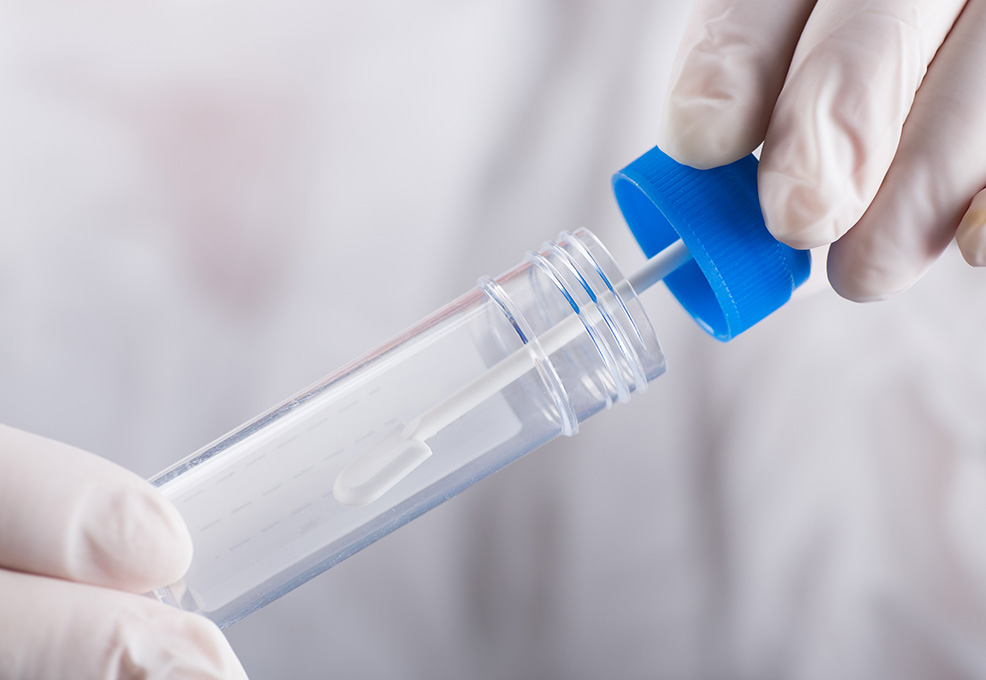Innovative Medical Technology: Fecal Microbiota Therapy

Author(s)
Yi-Jin Lu & Hui-Ying WangBiography
Yi-Jin Lu, Assistant Researcher, Science & Technology Policy Research and Information Center, National Applied Research Laboratories (Corresponding Author, email: yjlu@narlabs.org.tw)
Hui-Ying Wang, Research Assistant, Science & Technology Policy Research and Information Center, National Applied Research LaboratoriesAcademy/University/Organization
National Applied Research Laboratories-
TAGS
-
Share this article
You are free to share this article under the Attribution 4.0 International license
- LIFE SCIENCES
- Text & Image
- July 20,2021
The world population is aging rapidly due to the increasing average life expectancy and decreasing fertility rates. According to the “World Population Prospects” published by the United Nations in 2019, people aged 65 years or over worldwide will grow from 727 million to 1.5 billion from 2020 to 2050, accounting for approximately 15.9% of the world’s population. The National Development Council estimates that Taiwan will become a super-aged society with more than 20% of the population 65 years old or over by 2025. According to statistics provided by the Ministry of Health and Welfare, the average (annual) medical expenditure on the elderly over 65 years old is about four times that of 19-to-44-year-olds. Changes in the demographic structure will significantly impact on society. As society keeps aging, healthcare expenditure and demand will increase. On the other hand, manpower in medical or healthcare services is shrinking. Under these circumstances, healthcare costs will inevitably rise. Therefore, a new concept of precision health, which is based on precision medicine with a focus shifting from treatment to prediction and prevention, should be introduced.
Precision Medicine vs. Precision Health
The aim of general medicine is to help lessen the symptoms and effects of a disease. The quality of clinical practice to a large extent depends on the doctor’s expertise and experience. As a new concept of medicine, precision medicine involves “precision detection” and “precision treatment.” It aims to use integrated data, including genetics, environment, lifestyles, and other variables of a person, to produce the strategies of disease prevention or treatment. The difference between “precision health” and “precision medicine” is that precision health focuses on disease prevention, early detection, and treatment. Three types of states are usually used to categorize people’s health status, i.e., good health, suboptimal health status (SHS), and disease. SHS is a state between health and disease. People in a state of SHS usually carry different levels of risk factors for disease, or have a high risk of suffering from certain diseases, even if there is currently no disease diagnosis. If the risks can be dealt with early, the welfare of people in the SHS group can be improved. Precision health cares about people in all three types of health states. Precision health aims to improve people’s health by promoting healthy lifestyles, effective disease prediction, risk assessment, etc.
Technology Trends in the Precision Health Industry
According to “Digital Health” published by PwC Taiwan, the world’s medical expenditure is estimated to grow from US$ 10.6 trillion to US$ 15 trillion from 2019 to 2030. The investment in preventive healthcare, early diagnosis, and health maintenance is expected to increase from US$ 1 trillion to nearly US$ 4 trillion, accounting for about 1/3 of the expenditure. The shift from medical treatment to the precision health industry covering disease prevention and health promotion will become a trend in the future.
Biological databases are an important foundation for the development of precision health. To bring about personal health consultation, disease assessment, and treatment plans, technologies across various disciplines, such as big data, AI, and ICT, need to be adopted and integrated. For example, the UK Biobank was launched in 2006 as a long-term biological database project. It aimed to find the relationship between genetics, environment, and the occurrence of diseases. The study follows the cases of 500,000 healthy participants in the UK. The whole exome sequence data of 500,000 UK Biobank participants were generated from 2018 to the present, and the whole genome sequence data were generated from 2019. Whole exome sequencing allows all variations in the protein-coding region of any gene, including disease-specific or rare mutants, to be identified. Within a few years, the UK Biobank will become the world’s leading large-scale gene and biological database. The application of its open data will play an important role in biomedical research. Besides, the United States invested US$ 4.3 billion in the “All of Us Research Program”, which was launched in 2018. It was expected to invite 1 million participants from across the country. By building a massive database of people across various races, it not only aims to produce the strategies of disease prevention or treatment with integrated data, including genetics, environment, lifestyles, and other variables of the people, but also to lay the foundation for the era of high-efficiency health promotion. This will create more opportunities for people of different backgrounds to figure out which treatment, health maintenance, or preventive medicine works best for them. At present, many countries are either planning to establish or have already built biological databases of hundreds of thousands of people.
The Research and Development of the Precision Health Industry in Taiwan
According to market analysis reports published by Frost & Sullivan and MarketandMarkets, the global market of precision health will grow from US$ 319.8 billion to US$ 584.7 billion from 2020 to 2025. There is great potential in the precision health market. At the same time, the local market of precision health will grow from NT$ 8.75 billion to NT$ 14.2 billion. The history of big databases in Taiwan is described below. The National Health Insurance started in 1995, and it has accumulated health insurance and medical data for 25 years. National Biobank Consortium of Taiwan started in 2019, and it has consolidated the approved biological databases of more than 30 medical institutions since 2010. Taiwan Biobank was established in 2012, and it aimed to improve the diagnosis, treatment and prevention of chronic diseases by collecting information on living habits, environment, etc. and making them available to researchers. Currently, there are around 140,000 healthy participants. The Taiwan Precision Medicine Initiative was launched in 2019. It focuses on the risk assessment of common Chinese diseases. It intends to invite 1 million healthy people in Taiwan to join the project. In 2021, the Ministry of Health and Welfare, the Ministry of Science and Technology, and the Ministry of Economic Affairs jointly launched “The Sustainability platform of Health Big Data” program. It intends to improve the application of biomedical data and to accelerate the development of industry through integrating data resources such as health, clinical data, and a smart healthcare personal cloud.
In order to illustrate big data analysis and application, the four-year program “Flagship Program of Precision Medicine for AsiaPacific Biomedical Silicon Valley” launched by the Ministry of Health and Welfare in 2017 is taken as an example. For those patients with rare diseases, whole-genome sequencing is used to make up for the lack of detection methods at present. It could also speed up diagnosis, reduce ineffective treatment, and increase the detection rate. Besides, it is further expected to achieve the goal of prediction, risk assessment of rare diseases, and making proper living arrangements in advance through a cohort study. The research group has jointly established the “Taiwan Rare Disease Network” with the Taiwan Foundation for Rare Disorders, and has successfully invited several medical centers to work together.
Concluding Remarks
Big data collection integrated with AI and ICT for analysis plays an important role in the development of precision health. It is an enormous opportunity for Taiwan, where the semiconductor and ICT industries are booming. In the 11th National Science and Technology Conference held at the end of 2020, “Safe Society and Smart Life” (namely to introduce ICT and smart technology into services for people’s life and for society in the future) was one of the major issues in the summary report. The government aims to develop a novel risk assessment model and effective treatment strategies through cross-field integration, such as smart technology like AI and IoT. In order to achieve the vision of a healthy and smart country for all ages in 2030, precision medicine needs to be implemented, and precision health needs to be carried out.
References
- UK Biobank(2017). Genetic data. Retrieved from: https://www.ukbiobank.ac.uk/enable-your-research/about-our-data/genetic-data
- I-Wei Huang(2018)。The largest genetic database worldwide is expected to bring the new revolution to medicine and pharmaceuticals. Retrieved from: http://www.angle.com.tw/ahlr/discovery/post.aspx?ipost=2615
- IBMI News(2020)。Global anti-pandemic: How industries in Taiwan turn crisis into turnaround. “Series four” The development of new markets for digital transformation of healthcare. Retrieved from: https://ibmi.taiwan-healthcare.org/ibmi_news_detail.php?REFDOCTYPID=0q61b7oo7ibny817&REFDOCID=0qdqzn9nzd7h08y8
- National Development Council(2020)。To make Taiwan a benchmark country in precision health, and use science and technology to prevent pandemics. Taiwan Economic Forum, vol.19, no.1, pp.21-24
- Dar-Bin Shieh(2020)。Topic 1: The new pattern of production is urged in the post-pandemic era. 1-6: The development plan of precision health strategic industry in Taiwan. 2020 BTC manual, pp.73-79
STAY CONNECTED. SUBSCRIBE TO OUR NEWSLETTER.
Add your information below to receive daily updates.




